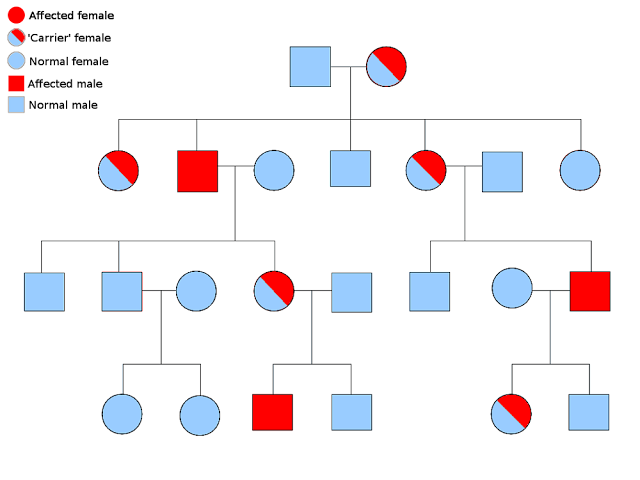Dates: January 8-12 2018
Location: University of Oslo,
Domus Medica (GoogleMap),
Seminar room 1151, close to south entrance of Domus Medica (map)
Lecturers: Magnus Dehli Vigeland (UiO), Thore Egeland (NMBU)
Recommended credits: 4 ECTS. Note that this course runs without a UiO course code, but has been approved by the UiO Faculty of Medicine. We will provide a letter confirming this approval and a diploma describing the work load after the course, to be approved at your local institution.
Practical information and updated program can be found here.
Registration: Closed

Summary:
This course introduces statistical methods in genetic relatedness and pedigree analysis, with applications in linkage analysis, relatedness inference and forensic genetics.
Description:
The study of genetic relatedness and how genetic information flows in families, is central in a variety of important research fields, including medical genetics, forensics and animal breeding. The aim of this course is to introduce the students to the elegant concepts and results forming the theoretical foundation of genetic relatedness, and to present in some detail several modern applications. In the exercises we will explore R packages like paramlink and Familias for plotting and analysing pedigree data.
Learning outcome:
After completing the course the student should know:
- classical concepts and methods of statistical genetics
- important applications of pedigrees and relatedness, including forensic genetics and linkage analysis in medical genetics
- important software for visualising and analysing pedigree data
Prerequisites:
Basic knowledge of genetics and probability.
All participants should bring a laptop with the R software installed (available from www.r-project.org).
Course program:
Monday
09-11 Introduction to pedigree genetics and R
11-12 Exercises
12-13 Lunch
13-15 Likelihoods on pedigrees. Hardy-Weinberg equilibrium
15-16:30 Exercises
Tuesday
09-11 Relatedness I: IBD and coefficients of relatedness
11-12 Exercises
12-13 Lunch
13-15 Relatedness II: Why some siblings are more equal than others
15-16:30 Exercises
Wednesday
09-11 Recombination and genetic linkage
11-12 Exercises
12-13 Lunch
13-15 Linkage analysis in medical genetics
15-16:30 Exercises
Thursday
09-11 Inference of relatedness and pedigree reconstruction
11-12 Exercises
12-13 Lunch
13-15 Forensics I: Paternity cases, complex identification cases
15-16:30 Exercises
Friday
09-11 Forensics II: Family reunions
11-12 Exercises
12-13 Lunch
13-15 Case studies. Wrap-up
15-16:30 Exercises
Evaluation:
The students will do a project after the course, delivering a written report within a month.
LagreLagre